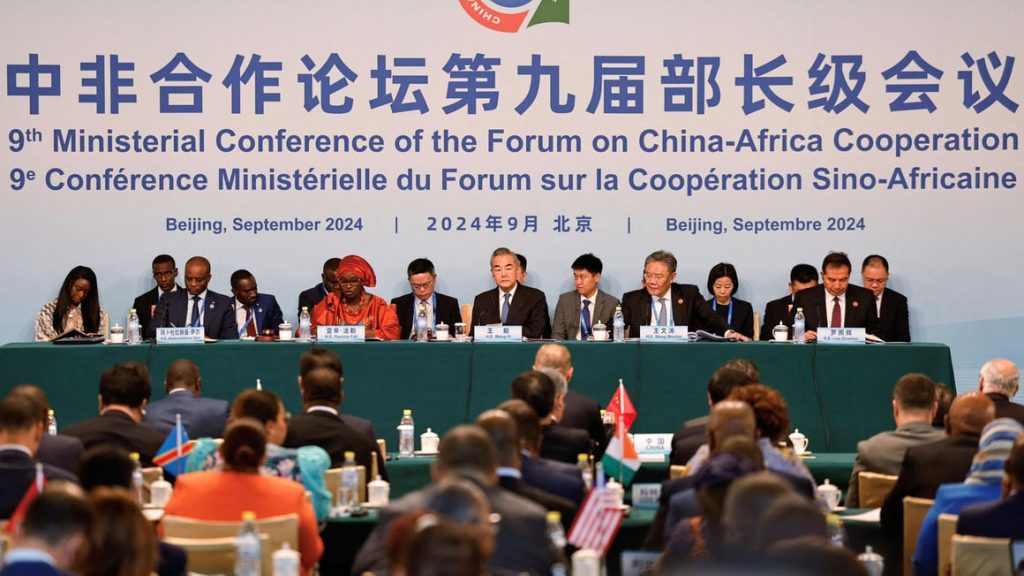Over the past two decades, China-Africa relations have strengthened significantly, largely driven by economic cooperation, investment, and infrastructure development. China has become Africa’s largest trading partner, with numerous projects focused on building roads, railways, and energy infrastructure.
As the ninth Forum on China–Africa Cooperation (FOCAC) begins in Beijing, a new dimension is gaining prominence: the global push for renewable energy.
Lauren Johnston, a development economist specializing in China-Africa relations, provides valuable insights into how this evolving dynamic is positioning both China and Africa as key players in the global shift toward green energy.
How is the green energy race impacting China-Africa relations?
The global climate crisis has accelerated the transition to renewable energy technologies such as solar and wind power, reducing dependence on traditional, polluting energy sources. China identified early on the opportunity to lead in the renewable energy industry.
Africa plays a critical role in this shift, as the continent is home to essential minerals required for renewable technologies. Resources like copper, cobalt, and lithium, which are vital for battery production, are abundant in various African countries.
The demand for these minerals has triggered a global race for their extraction, with China, the US, and Europe competing for access. China’s mining activities in Africa, though smaller than those of Western countries, are concentrated in five key nations: Guinea, Zambia, South Africa, Zimbabwe, and the Democratic Republic of Congo (DRC).
Among these, the DRC, Zambia, and Zimbabwe are at the heart of Africa’s green energy race due to their vast reserves of copper, cobalt, and lithium. The DRC is particularly noteworthy for its significant deposits of cobalt, a metal critical to lithium battery production, as well as high-grade copper.
China’s presence in African mining
China has become the leading foreign investor in the DRC, controlling about 72% of the country’s active cobalt and copper mines, including the Tenke Fungurume Mine, one of the world’s largest sources of copper and cobalt. The Chinese company CMOC Group is also the top global cobalt producer, with the potential to produce up to 70,000 tonnes from the new Kisanfu mine.
In 2019, China and the DRC together accounted for about 70% of the world’s cobalt production. China also dominated 60% of the production of rare earth elements crucial for green energy technologies.
Zimbabwe, another key player in the race, possesses Africa’s largest lithium reserves, an essential element for electric vehicle batteries. In 2023, a Chinese firm, Zhejiang Huayou Cobalt, invested $300 million to establish a lithium processing plant in Zimbabwe, contributing to the global production of lithium concentrate.
Additionally, China is investing in Morocco’s first large-scale battery factory, while in Guinea, Chinese companies have secured rights to develop the world’s largest untapped high-grade iron ore deposit. This resource is critical for producing steel, which is used in constructing renewable energy infrastructure like wind turbines and solar panel mounts. The Simandou iron ore project, led by Chinese steel giant Chinalco, is expected to begin production by 2026.
Challenges for African countries
As China expands its control over Africa’s renewable resources, concerns arise for African countries regarding development. Many African nations are keen to move beyond exporting raw materials to China and instead want to process these minerals domestically. By adding value to their resources at home, they could foster local industrialization and reduce their dependence on imports of manufactured goods from China.
One major issue is China’s dominance in the solar panel manufacturing process, where it controls over 80% of the global supply chain. While competition and concentrated production have driven down solar panel prices, there is frustration that Africa remains dependent on imports rather than developing its own manufacturing capabilities.
China has shown interest in closing Africa’s energy gap by supplying solar energy solutions to areas lacking reliable electricity. The Africa Solar Belt Programme, expected to be discussed at FOCAC, aims to provide solar energy to African homes, schools, and healthcare facilities, with support from organizations like the World Resources Institute.
However, there are growing concerns over the social and environmental impacts of Chinese mining operations in Africa. These concerns include poor working conditions, forced evictions, and human rights abuses linked to mining projects. South Africa, for instance, has responded by imposing tariffs on imported solar panels to protect its domestic solar industry.
What steps can African nations take?
African countries have several avenues to better manage their relationships with China and benefit from the growing demand for green energy minerals.
First, they should prioritize labor standards and human rights to ensure that mining operations respect workers and local communities.
Second, African businesses can learn from their Chinese counterparts, acquiring the technical expertise and industrial knowledge necessary to build their own industries. Much like China’s own experience in learning from Japan, Taiwan, and Western nations, Africa can capitalize on its partnership with China to foster industrial growth.
Third, African nations can take inspiration from other emerging markets, such as Indonesia, which successfully took control of the global nickel market. By banning nickel exports in 2014, Indonesia encouraged the development of its own industries, with the support of Chinese investments.
Finally, African countries could adopt what is referred to as China’s “Hunan Model” for development, which focuses on key sectors like agriculture, mining, transport, and construction, while building local talent through vocational and technical training.
As Africa positions itself in the global green energy race, a more balanced and mutually beneficial partnership with China will be key to ensuring long-term development and economic growth for both regions.























